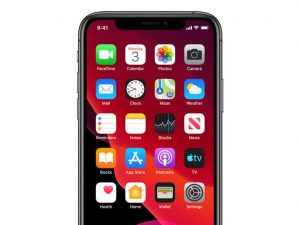The two organizations are hoping to increase diversity within the artificial intelligence field and prevent AI bias.

Image: Getty Images/iStockphoto
Black and Brilliant, an advocacy network founded in 2020 by Tony Effik, is working with Codeacademy to create a free 10-week accelerated course in Applied Artificial Intelligence to commemorate Black History Month.
SEE: Snowflake data warehouse platform: A cheat sheet (free PDF) (TechRepublic)
In an interview, Effik said artificial intelligence is now used widely in almost every field but noted that the industry is still largely devoid of talent from diverse communities. Effik explained that the 10-week course was a chance to kill two birds with one stone: Helping Black and brown people get higher paying AI jobs while also making AI less discriminatory toward communities of color.
“My fear, and the reality is, that Black and brown people are under-represented in that space as it takes off. That’s where a lot of the high-paying jobs are going to be, where the influence of power is going to be,” Effik said.
“The downside is that there is going to be a future where automation causes economic dislocation and disruption, and disproportionately Black and brown communities are going to suffer from that,” Effik said. “There is also the social side, where we’re coding so many biases into AI and machine learning. If you don’t have representation in these spaces, when decisions are being made, we are at a disadvantage.”
SEE: Top 5 programming languages for systems admins to learn (free PDF) (TechRepublic)
The Artificial Intelligence Accelerator program starts March 15 and runs until the middle of May, featuring a mix of mentoring from coaches as well as courses on key topics like AI Ethics, User Experience/Creative, the Business of AI, and Programming/Machine Learning/Data Science.
The coaches will include experts and industry leaders like Marc Maleh, Quincy Olatunde, Toju Duke, Dr. Claudia Igbrude, Matthew Adeiza, Bashir Mohammed, Mahir Yavuz, Sakinah Adebola Abdul-Ibiyeye, Michael Horn and others.
The program will be split into two tracks, with 10 spots for those with previous technical experience and 100 more spots with a more self-guided experience for those who do not have an in-depth technical know-how.
“Codecademy was founded on the belief that all people should have the ability to learn skills that will help them succeed in the 21st century. As AI and machine learning continue to grow in scale and influence, it’s imperative that people of all backgrounds, races and genders have the opportunity to be a part of those industries,” said Zach Sims, co-founder and CEO of Codecademy.
“After meeting Tony and learning about his work with Black and Brilliant, we quickly saw an opportunity to collaborate and create a unique learning experience for Black and brown students interested in AI. By combining upskilling and mentorship, this one-of-a-kind course will empower a new generation of AI talent and help remove the barriers to entry for a more diverse and inclusive tech workforce.”
SEE: AI on the high seas: Digital transformation is revolutionizing global shipping (free PDF) (TechRpublic)
Effik, who now serves as global managing director at Google and adjunct professor at Columbia University, said he got his start in technology in a non-traditional way and is hoping the program can help upskill those who may be looking for a career change.
“If you look at African Americans specifically, what you see is the total number of STEM graduates is increasing, but when they do study STEM courses, they end up studying mechanical engineering or civil engineering. But they’re the lowest paying STEM courses post-graduation,” he said.
“So these kids are leaving with the highest student debt and then they’re doing the courses that pay them the least, when clearly they have all of the statistical and mathematical capabilities to take the highest-paying STEM courses, which happen to be software engineering or computer science.”
He added that sometimes, especially for communities of color, technology positions can seem daunting or difficult to reach for some. Part of the goal of the program, and of the mentors involved, is to show Black and brown participants that these positions are attainable and worthwhile.
“This mentorship is going to be about supporting and helping the participants through the hard parts of their journey. We’ll be artfully striking the balance not to create them in our image, but to help each one of them discover their own greatness and potential,” said Quincy Olatunde, vice president of data products at NBCUniversal.
In addition to opportunities for personal advancement, Effik said it was important for more minorities to get involved in the AI and machine learning field because of how important it is to how the world functions today.
Over the past five years, dozens of stories have come out about how artificial intelligence has had negative effects on things as serious as criminal justice, policing and hiring, as well as things as lighthearted as photo cropping on social media.
As an example, Effik spoke about a fun Christmas app he used for his children. The app generated a video of Santa Claus addressing a child, and all parents had to do was put their child’s name in. But when he put his daughter’s name, Nia, into the app, it generated a video with her name mispronounced.
In order to address the big and small mistakes artificial intelligence and machine learning tools make, Black and brown people have to be in the room.
“Once we can get more people into this space, we start to solve some really interesting technology problems through representation. We just need people in the room to speak up for other communities,” Effik said. “We want to make sure that people are coming into this space, and they’re not making the same mistakes as everyone else in the past. There isn’t a shortage of people, there is a shortage of people in the right jobs and disciplines.”
Also see
Source of Article




